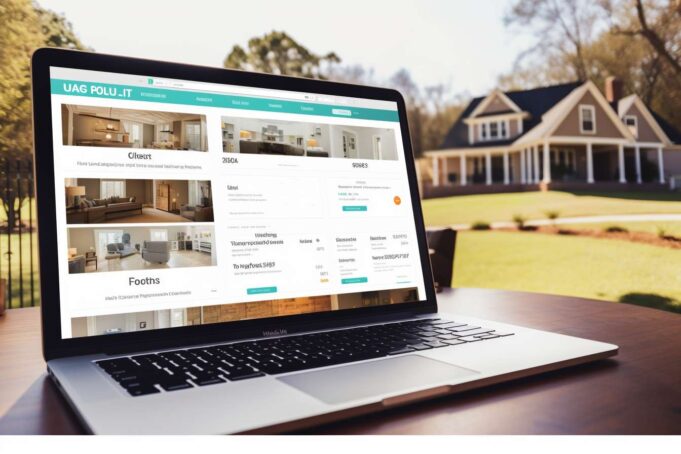Property crowdfunding has emerged as an innovative and accessible investment method, allowing individuals to participate in real estate ventures by pooling their resources. This modern approach to investing has disrupted the traditional real estate market and opened up opportunities for individuals who may have needed more means to invest in properties independently.
This article will delve into property crowdfunding, explore who can participate in such endeavors, discuss the associated risks, and highlight some of the best property crowdfunding platforms available.
What is Property Crowdfunding?
Property crowdfunding, also known as crowdfunding for real estate, is a form of collective investing where multiple individuals collectively contribute relatively small amounts of capital to purchase a property. By leveraging the internet’s and technology’s power, crowdfunding platforms connect investors with real estate developers or operators seeking funding for their projects. In return, investors receive proportional ownership or a share of the property’s returns.
Who Can Crowdfund to Buy a Property?

Property crowdfunding is an inclusive investment model, enabling many individuals to participate in the real estate market. While eligibility criteria may vary depending on the platform, anyone over 18 with access to a computer or smartphone and a sufficient amount of capital can participate. This means accredited investors (high-net-worth individuals with significant financial resources) and non-accredited investors can participate in property crowdfunding. The minimum investment amounts can vary across platforms, allowing investors to contribute according to their financial capacity.
What are the Risks of Property Crowdfunding?
As with any investment, property crowdfunding carries certain risks that investors should know before participating. Here are some of the critical risks associated with property crowdfunding:
- Market Risk: Real estate markets can fluctuate, affecting property values and rental income potential. Changes in economic conditions, interest rates, or local regulations can impact the return on investment.
- Project Risk: Every real estate project carries risks, including construction delays, cost overruns, or unforeseen legal issues. Investors should conduct thorough due diligence on the projects they consider investing in.
- Illiquidity: Property crowdfunding investments often involve long holding periods, limiting the ability to access invested funds quickly. Investors should be prepared for potential illiquidity and consider their investment horizon accordingly.
- Platform Risk: Not all crowdfunding platforms are created equal, and there is a risk of fraud or platform failures. Researching and choosing reputable platforms that provide adequate investor protection measures is essential.
- Lack of Control: Investors typically need more control over the decision-making process when investing through property crowdfunding. The project’s success and management decisions are primarily in the hands of the real estate developer or operator. This lack of control can pose risks if the project does not perform as expected or the developer faces challenges.
- Regulatory and Legal Risks: Property crowdfunding operates within the framework of regulatory and legal requirements. Regulation changes or legal disputes can impact the investment’s viability and potential returns. Investors should stay informed about regulatory developments and assess the platform’s compliance with relevant laws.
- Concentration Risk: Property crowdfunding often involves investing in a single property or a limited number of properties. This concentration of investments in specific projects or locations can amplify the impact of any adverse events or market downturns that affect those properties.
- Valuation Risks: Property valuations are subject to various factors, including market conditions and appraisals. There is a risk that the property’s actual value may differ from the initially estimated or projected value, potentially affecting the investment’s profitability.
- Exit Strategy Challenges: Exiting a property crowdfunding investment can be challenging due to the illiquid nature of real estate. If investors want to sell their shares or exit the acquisition before the planned exit period, they may need help finding buyers or may need to sell at a discounted price.
- Economic Downturns: Real estate markets are susceptible to economic downturns and fluctuations. During an economic recession or market volatility, property values may decline, rental income may decrease, and liquidity can be further constrained. Such economic downturns can impact the overall performance of property crowdfunding investments.

It’s crucial for investors to carefully consider these risks and conduct thorough due diligence on the projects, developers, and platforms before committing to property crowdfunding investments. Diversification, understanding the local real estate market, and consulting with financial professionals can help mitigate some of these risks and make informed investment decisions.
Best Property Crowdfunding Platforms:
Several property crowdfunding platforms have gained prominence in the industry due to their track record, user-friendly interfaces, and robust investment opportunities. While individual preferences and investment goals may vary, here are some noteworthy platforms:
- RealtyMogul: RealtyMogul is a leading property crowdfunding platform that offers a range of investment options, including commercial properties, residential projects, and real estate investment trusts (REITs).
- Fundrise: Fundrise allows individuals to invest in real estate for as little as $500, offering a diverse portfolio of commercial and residential properties across the United States.
- Patch of Land: Patch of Land specializes in residential and commercial real estate loans, allowing investors to participate in debt-based crowdfunding opportunities.
- RealtyShares: RealtyShares offers access to a broad range of real estate investments, including residential, commercial, and mixed-use properties. They provide both debt and equity investment options.
- Crowdstreet: Crowdstreet offers a marketplace connecting accredited investors with institutional-quality commercial real estate projects. They provide detailed investment offerings, including office buildings, multifamily properties, and retail spaces.
- PeerStreet: PeerStreet focuses on crowdfunding real estate loans, specifically residential and commercial debt investments. They provide access to short-term, high-yield loans secured by real estate properties.
- Groundfloor: Groundfloor specializes in lending for residential real estate projects. They offer short-term loans to real estate developers and allow individual investors to participate in fractional investments starting at $10.
- Roofstock: Roofstock focuses on single-family rental properties. They provide an online marketplace where investors can buy, sell, and own single-family rental homes across various markets in the United States.
- RealCrowd: RealCrowd connects accredited investors with commercial real estate investment opportunities. They offer a range of property types, including office buildings, industrial properties, retail centers, and more.
- Prodigy Network: Prodigy Network specializes in commercial real estate projects, particularly in the hospitality sector. They focus on crowdfunded investments in high-profile properties like hotels and commercial buildings.

It’s important to note that selecting the best property crowdfunding platforms may depend on individual preferences, investment goals, and geographical preferences. Conducting thorough research and due diligence is crucial when choosing a platform to ensure it aligns with specific investment criteria and provides appropriate investor protection measures.
Online Trading Apps as an Alternative Investment Type:
While property crowdfunding is an attractive investment avenue, it’s worth exploring other alternatives, such as online trading apps, to diversify one’s portfolio. Online trading apps, like Immediate Edge, allow individuals to engage in various financial markets, including cryptocurrencies, stocks, forex, and more. These apps provide user-friendly interfaces, real-time market data, and automated trading features to help investors make informed decisions and generate returns.
Wrapping Up
Property crowdfunding has revolutionized the real estate investment landscape, democratizing market access and offering investors diverse opportunities. By leveraging the power of crowdfunding platforms, individuals can participate in real estate projects with lower capital requirements and reduced barriers to entry. While risks exist, thorough research and due diligence can mitigate potential downsides. Furthermore, exploring alternative investment types, such as online trading apps, can complement property crowdfunding as part of a diversified investment strategy. As always, consulting with financial advisors and making informed decisions based on individual investment goals and risk tolerance is crucial.















